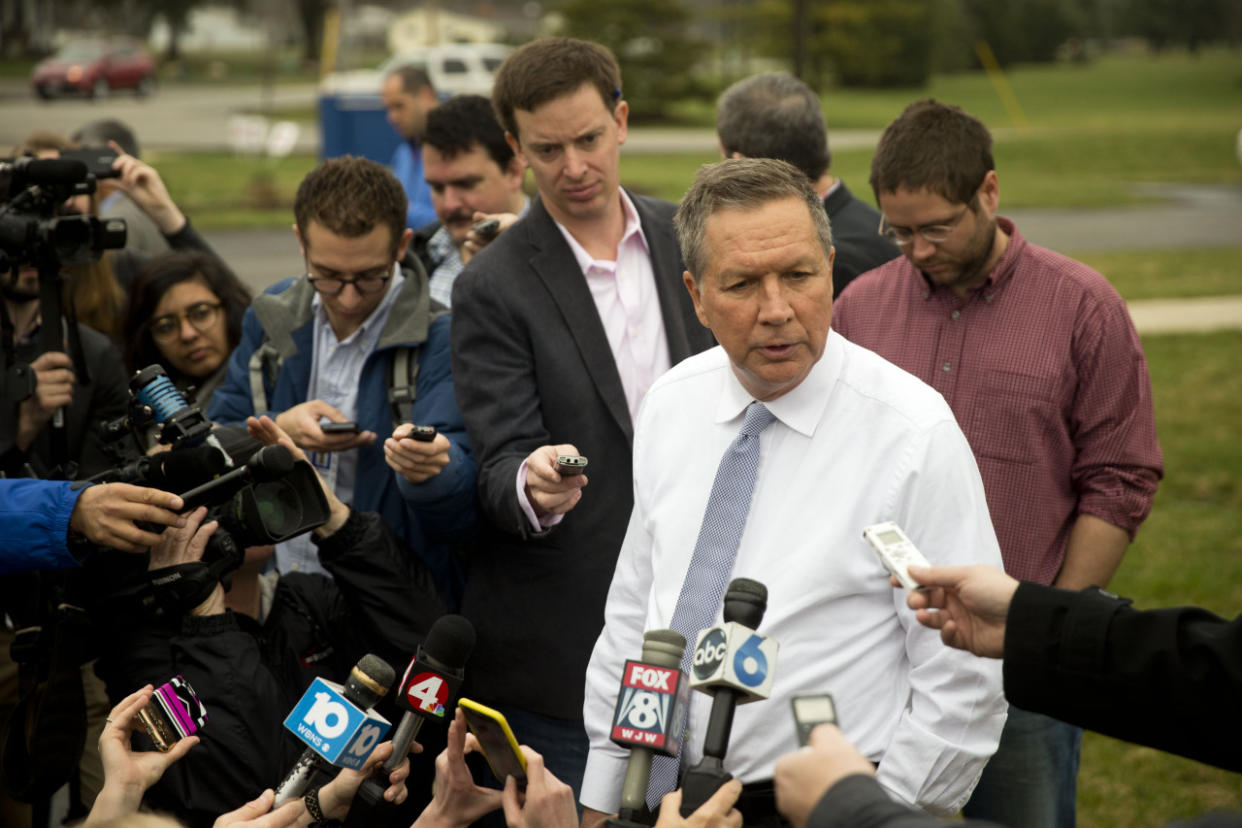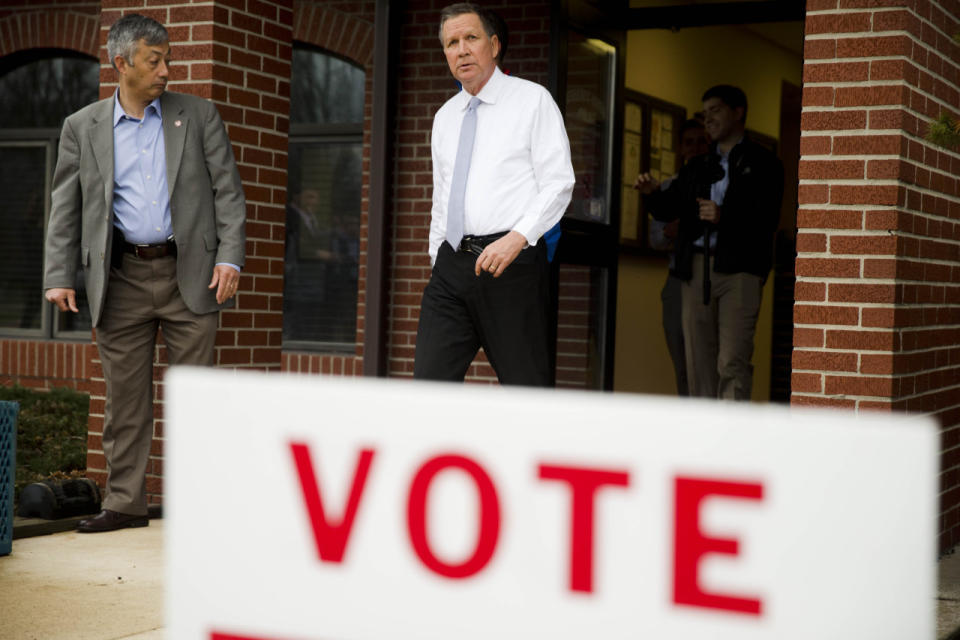Is Ohio’s primary a presidential bellwether?

Ohio Gov. John Kasich after voting in the primary. (Photo: Matt Rourke/AP)
We’ve heard it before: Republicans need to win Ohio if they want to move to 1600 Pennsylvania Ave. In fact, the state’s governor, John Kasich, likes to cite this as a reason why Republicans should support his presidential candidacy, despite his having lost in every other state so far.
Kasich argued that Ohioans have a history of picking the country’s presidents because they reject extremism in both parties.
“Ohio’s status as the national bellwether is not a reputation, it’s a fact. No Republican has ever won the White House without winning Ohio. Ever,” his campaign website reads.
That has been the case since the Republican Party began in 1854. But what does that mean for this year’s election?
Eric Ostermeier, a research associate at the University of Minnesota and founder of Smart Politics, says there is a lot of data to suggest that the battleground state is the ultimate bellwether in the general election: It has the current longest “winning streak” for voting for the winning presidential candidate in the general election. Since 1964, in 13 consecutive cycles, the candidate who won Ohio also won the White House.

Kasich in Westerville, Ohio, after casting his ballot. Will he be the “favorite son” who wins the primary and then the presidency? (Photo: Matt Rourke/AP)
“That’s the eighth longest streak in U.S. history, and if they do so again in 2016, that will be tied for the third longest ever, at 14 in a row,” Ostermeier said in an interview with Yahoo News. “So it’s a very long streak, especially in the modern political era.”
But that does not necessarily translate to the primary on Tuesday.
“The way I hear candidates talking about this, they are sort of conflating carrying Ohio in the primary versus the general election,” Ostermeier said. “It’s not been the case that Ohio has been a perfect bellwether in picking the party’s nominee.”
But, he noted, it has been true in the modern primary era. Each of the past 11 GOP nominees did win the Buckeye State primary — from Richard Nixon in 1972 to Mitt Romney in 2012. There are eight other states where this is true.
“On the continuum, it’s been more of a bellwether than most states,” Ostermeier said, “but there are caveats.” Before the modern era, there are many examples where this was not the case.
In 1912, former President Teddy Roosevelt won Ohio but lost the Republican nomination to friend-turned-foe and then incumbent President William Howard Taft (who was from Ohio).
Several “favorite son” candidates won the Ohio primary but never won the nomination, such as Ohio Sen. Robert Taft in 1940, 1948 and 1952 and Ohio Gov. James Rhodes in 1964 and 1968.
“That’s a different era of politics, and primaries did not have the weight that they do now,” Ostermeier said. “But it’s fair to say that in the modern primary era, the winner of the Ohio Republican primary has been the nominee.”
Although, he pointed out, in several of those cycles — especially in the 1970s and 1980s — Ohio held its contests much later in the calendar year (in May or June), so much of the drama had already passed and the nominee was essentially known. It wasn’t until the 1996 cycle that Ohio’s primary was moved to March.
From 1912 until 2012, there have been 26 presidential primaries in Ohio, so it’s a fairly small sample size and the conditions behind these elections have changed, so it’s somewhat difficult to draw hard and fast conclusions about its predictive power.
To say that this year’s Republican primary race has been unusual would be an understatement. The overcrowded field prevented many campaigns that might have wooed voters in other years from gaining traction. And boisterous real estate magnate Donald Trump’s ascent to the top of the pack vastly changed the tone of the debates and media coverage. With all these elements converging, many prognosticators and top brass in the Republican Party have been left scratching their heads — and wondering whether the old rules, like the one about Ohio, will still hold true.
Related video:


